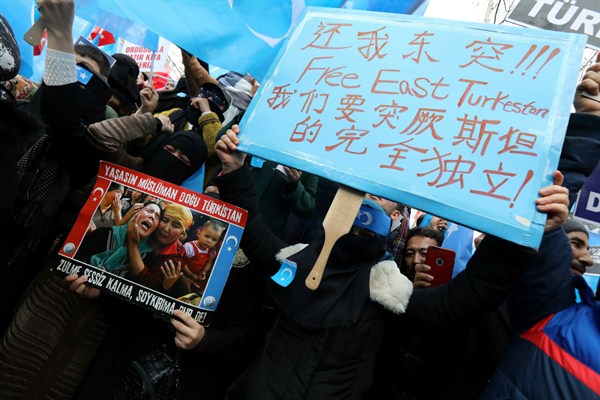In her first speech since assuming her new post, United Nations High Commissioner for Human Rights Michelle Bachelet criticized China this week for forcibly detaining more than a million Muslim Uighur minorities in a secretive network of so-called re-education camps. Her remarks were based on findings from a U.N. panel released last month. The panel cited “credible reports” that the Xinjiang Uighur Autonomous Region in northwestern China had been transformed into “something that resembles a massive internment camp.” Ever resistant to such criticism, Beijing pushed back on Bachelet’s remarks and demanded that she “respect China’s sovereignty.” In an email interview, Zubayra Shamseden, Chinese outreach coordinator for the Uighur Human Rights Project, discusses the Chinese government’s treatment of the Uighurs.
World Politics Review: What is the scale and scope of the current crackdown on Uighurs in China, and what was the triggering event or justification for it?
Zubayra Shamseden: There are no Uighurs who have not been affected in some way by the current crackdown. Inside East Turkestan (the Uighur term for Xinjiang), elsewhere in China, and even beyond Chinese borders, regardless of social status, gender, generation or profession, all have suffered under the current campaign of repression. This campaign is being carried out in the so-called re-education camps. While there are no official figures from the Chinese government, it is currently estimated that over 1 million Uighurs are in the camps. This estimate comes from Chinese government tenders for the construction and staffing of the camps, and is corroborated by satellite photos, media reports and on-the-ground investigations by human rights groups.

